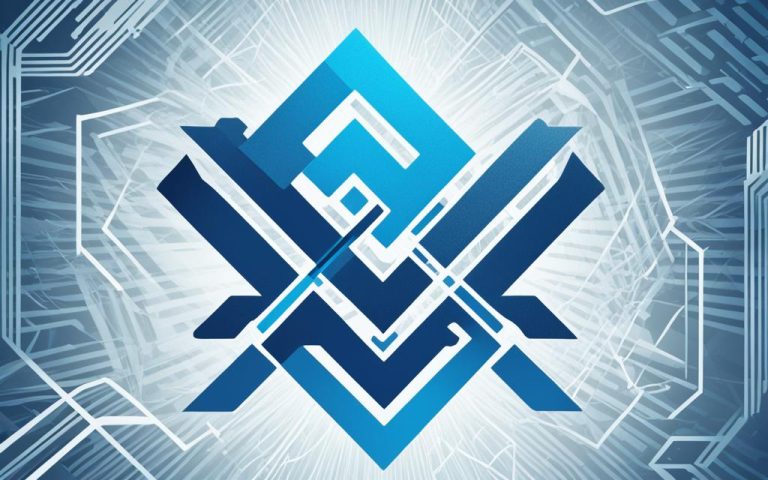Blockchain transactions are key when using cryptocurrencies. However, they can sometimes be slow. This slowness is because of issues like network congestion and low fees.
The time it takes to confirm a blockchain transaction varies. It depends on the blockchain type and current network conditions. Bitcoin transactions, for instance, usually confirm in about 10 minutes. To see your transaction’s status, you can use a blockchain explorer.
Ethereum and Litecoin have faster transactions than Bitcoin. For example, an Ethereum transaction often takes about 2 minutes to confirm.
Services like Coinbase and Binance need a certain number of confirmations. Coinbase needs 3 for Bitcoin transactions. Binance needs 1 for deposits and 2 for withdrawals.
Transaction fees also affect Bitcoin’s confirmation time. Higher fees mean quicker confirmations. In April 2021, the average fee for a Bitcoin transaction was $59.
When many transactions are pending, the network gets congested. This makes the average Bitcoin transaction time longer. Using the blockchain mempool size chart helps avoid busy times.
To speed up transactions, you can use tools like Replace-by-fee (RBF) and Child Pays for Parent (CPFP). The Trezor Suite has features to help with this. It even lets you set higher fees to get transactions confirmed faster. Electrum also uses CPFP to encourage miners to prioritize transactions on Trezor devices.
In summary, many factors affect how long a blockchain transaction takes to confirm. But, by knowing these factors and using the right tools, you can make your transactions faster.
Factors Affecting Blockchain Confirmation Times
Several factors can make blockchain transactions slow or fast. Let’s look at these factors more closely:
Network Congestion
Network congestion slows down transaction speeds in blockchain networks. When too many transactions happen at once, the network can get congested. This causes a queue of unconfirmed transactions, making confirmation times longer. Competing for space in the next block can also cause delays.
Transaction Fees
Transaction fees help decide how quickly a transaction gets processed. Miners or validators look for transactions with higher fees to process first. If your transaction has a low fee, it might be ignored or processed later, which makes it take longer. You can speed up your transaction by paying a higher fee.
Double-Spending
Double-spending means trying to spend the same funds more than once. This act can delay and complicate legitimate transactions. Blockchain networks check to stop double-spending, but these checks can make confirmation times longer.
Confirmations Required
The number of confirmations needed can affect how long a transaction takes. Some services might be okay with one confirmation, while others need more. More confirmations mean a longer wait for your transaction to be fully confirmed.
Network Conditions
General network conditions also affect how fast transactions are confirmed. When many people want to make transactions, confirmation times can increase. But, when the network is less busy, transactions can be confirmed more quickly without raising fees.
To better understand these times, let’s see how long transactions take on some well-known blockchains:
| Blockchain | Average Pending Time |
|---|---|
| Bitcoin (BTC) | 10 minutes |
| Ethereum (ETH) | 2 minutes |
| Ripple (XRP) | 4 seconds |
| Litecoin (LTC) | 2.5 minutes |
| Bitcoin Cash (BCH) | 10 minutes |
These times show how different blockchains have different confirmation speeds.
Users can follow various strategies to make blockchain transactions faster:
- Increasing transaction fees to prioritize the transaction.
- Choosing blockchains with shorter block times for faster confirmations.
- Using third-party solutions like the Lightning Network or Polygon for quicker transactions.
Blockchain improvements, like Ethereum 2.0, can make the system faster and reduce confirmation times. Also, technologies such as Segregated Witness (SegWit) can streamline transactions for quicker confirmations.
By knowing what affects confirmation times and using ways to speed up transactions, users can deal with the challenges of blockchain transactions effectively.
For more insight into blockchain confirmation times, check out these links:
- Tokenview.io – How Long Does Blockchain Pending Take
- Mxicoders.com – How Long Does Blockchain Pending Take? A Complete Guide to Understanding Blockchain
- Coincarp.com – How Long Does Blockchain Pending Take? A Complete Guide to Understanding Blockchain
Optimizing Blockchain Transactions
In our digital age, making blockchain transactions fast is key. This matters for payments, asset transfers, or decentralized finance. Here’s how to make blockchain work better for you.
To get your transaction confirmed quicker, increase the fee. A higher fee tempts miners or validators to process your transaction first. This tactic works well when the network is busy.
Using a faster blockchain also helps. Pick one with quick block times and high throughput for faster confirmations. But, think about the security and compatibility before choosing.
Another option is to use services like the Lightning Network or the Liquid Network. They offer quick Bitcoin transactions through special methods. This makes transactions faster and cheaper.
It’s important to keep an eye on your transactions. Use a blockchain explorer to check if your transaction is pending or confirmed. This keeps you updated and helps you make decisions.
With these tips, you can navigate digital transactions easily. Increase fees, choose fast blockchains, use third-party services, or monitor statuses to improve your blockchain experience.
FAQ
How long does it usually take for a blockchain transaction to confirm?
Blockchain transaction times depend on various factors. These include the blockchain type, the required number of confirmations, and the network’s current state. Bitcoin transactions usually confirm in about 9 minutes, and Ethereum takes around 2 minutes. But, these times are not fixed.
What factors can affect the confirmation time of a blockchain transaction?
Many things can change how long a transaction takes. Network traffic, transaction fees, and double-spend attempts are main factors. Services and platforms may also need different numbers of confirmations, impacting timing.
How can I optimize blockchain transactions to reduce confirmation time?
To speed up transactions, you can do a few things. Raising the fee can make miners fast-track your transaction. Picking a quicker blockchain or using services like Lightning Network also helps. Additionally, using a blockchain explorer lets you check your transaction’s current status.



















